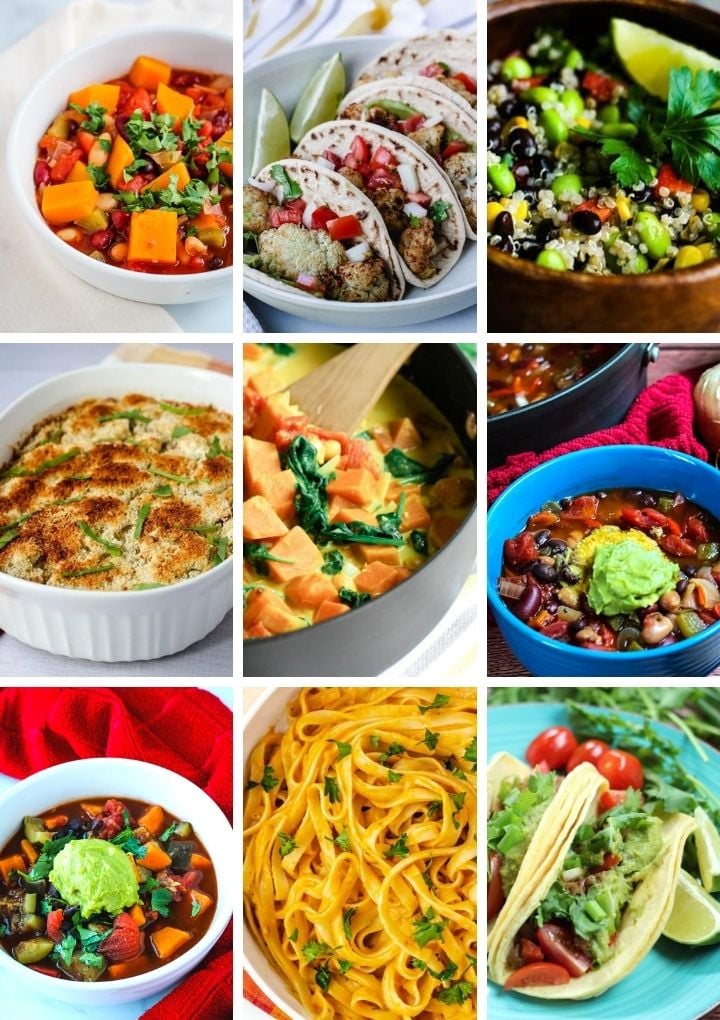[The Vegan’s Guide To Meal Planning And Prep]

Executive Summary

Embarking on a vegan lifestyle is an exciting adventure, but it can also feel overwhelming, especially when it comes to meal planning and prep. This comprehensive guide aims to equip you with the knowledge and strategies to navigate the world of vegan cuisine with ease and confidence. From understanding the essentials of a balanced vegan diet to mastering efficient meal prepping techniques, we’ll cover everything you need to create delicious, nutritious, and fulfilling meals every day.

Introduction
Adopting a vegan diet can be a rewarding experience, offering numerous health and ethical benefits. However, transitioning to a completely plant-based lifestyle requires careful consideration of nutritional needs and meal planning. This guide will serve as your roadmap to effortlessly embrace a vegan diet by providing practical strategies and insights.
Frequently Asked Questions
Q: Is it challenging to get enough protein on a vegan diet?
A: Absolutely not! Many plant-based foods are excellent sources of protein, including legumes, tofu, tempeh, seitan, nuts, and seeds. A well-planned vegan diet can easily provide the necessary protein intake.
Q: What are some essential vegan staples?
A: Stocking your pantry with vegan staples like beans, lentils, rice, quinoa, oats, nuts, seeds, and tofu will provide a solid foundation for a variety of delicious meals.
Q: How can I ensure I’m getting all the essential nutrients on a vegan diet?
A: While a well-planned vegan diet can provide all the necessary nutrients, it’s important to be mindful of certain nutrients like vitamin B12, iron, and omega-3 fatty acids. Supplementing with these nutrients can ensure optimal health and wellbeing.
Understanding Vegan Nutrition
A balanced vegan diet emphasizes whole, unprocessed plant-based foods. It should include a variety of fruits, vegetables, legumes, grains, nuts, and seeds. Here’s a breakdown of key considerations:
- Protein: Abundant in legumes, tofu, tempeh, seitan, nuts, and seeds.
- Iron: Found in lentils, spinach, fortified cereals, and tofu.
- Calcium: Present in leafy green vegetables, fortified plant milks, and tofu.
- Vitamin B12: Essential to obtain through supplementation or fortified foods.
- Omega-3 Fatty Acids: Include flaxseeds, chia seeds, and walnuts in your diet.
Planning Your Vegan Meals
Efficient meal planning is the cornerstone of a successful vegan lifestyle. This section will guide you through the process:
- Weekly Meal Planning: Dedicate some time each week to plan your meals. This will help you stay organized, avoid impulse purchases, and prevent last-minute cooking stress.
- Create a Shopping List: Once you’ve planned your meals, create a comprehensive shopping list to ensure you have all the necessary ingredients.
- Utilize Meal Prep: Dedicate a few hours each week to prepare ingredients and dishes in advance. This can save you time and effort during busy days.
- Consider Your Schedule: Factor in your daily schedule and time constraints when planning your meals. Choose recipes that align with your available cooking time.
Mastering Vegan Meal Prep
Successful vegan meal prep involves strategic planning and efficient execution:
- Batch Cooking: Prepare large batches of staples like lentil soup, quinoa, or roasted vegetables. These can be reheated throughout the week for quick and easy meals.
- Utilize Freezer-Friendly Recipes: Many vegan recipes, like veggie burgers, soups, and stews, freeze well.
- Prepare Salad Bases: Chop vegetables and prepare salad dressings in advance to quickly assemble healthy salads.
- Snack Preparation: Have healthy snacks readily available, like trail mix, fruit, or vegetable sticks.
Delicious Vegan Recipes
Experimenting with various vegan recipes is a fun and rewarding aspect of a plant-based lifestyle. Here are some inspiring ideas:
- Breakfast: Overnight oats, tofu scramble, vegan pancakes, smoothie bowls.
- Lunch: Lentil soup, Buddha bowls, wraps, salads, veggie burgers.
- Dinner: Vegan stir-fries, pasta dishes, curries, roasted vegetables with chickpeas.
- Snacks: Fruit, nuts, seeds, hummus, vegetable sticks, smoothies.
Conclusion
Transitioning to a vegan lifestyle is a journey filled with delicious possibilities and health benefits. By mastering the art of meal planning and preparation, you can create a vibrant and sustainable vegan lifestyle that nourishes your body and mind. Remember to embrace the vast world of vegan cuisine, experiment with new recipes, and enjoy the journey of discovering the incredible flavors and versatility of plant-based eating.
Keyword Tags
- Vegan Meal Planning
- Vegan Recipes
- Plant-Based Diet
- Vegan Nutrition
- Meal Prep